
Writer
Anthology film made as an act of protest against Hungarian government of Viktor Orban.

Director
Anthology film made as an act of protest against Hungarian government of Viktor Orban.

Self
The Midnight Sun Film Festival is held every June in the Finnish village of Sodankylä beyond the arctic circle — where the sun never sets. Founded by Aki and Mika Kaurismäki along with Anssi Mänttäri and Peter von Bagh in 1985, the festival has played host to an international who’s who of directors and each day begins with a two-hour discussion. To mark the festival’s silver anniversary, festival director Peter von Bagh edited together highlights from these dialogues to create an epic four-part choral history of cinema drawn from the anecdotes, insights, and wisdom of his all-star cast: Coppola, Fuller, Forman, Chabrol, Corman, Demy, Kieslowski, Kiarostami, Varda, Oliveira, Erice, Rouch, Gilliam, Jancso — and 64 more. Ranging across innumerable topics (war, censorship, movie stars, formative influences, America, neorealism) these voices, many now passed away, engage in a personal dialogue across the years that’s by turns charming, profound, hilarious and moving.
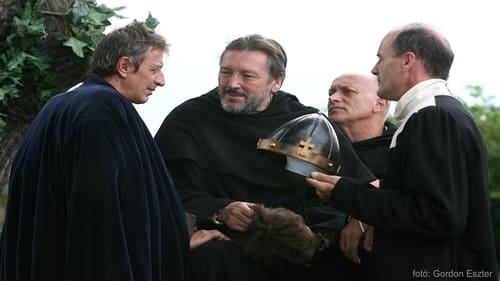
Screenplay
Concerning the Mátyás era in Hungarian history, during the reign of Matthias Corvinus (1443–1490), the film focuses on three eras of the king's life: the young Mátyás fights for the throne, the older Mátyás as king, and the fate of the royal crown and the royal heir after his death.

Director
Concerning the Mátyás era in Hungarian history, during the reign of Matthias Corvinus (1443–1490), the film focuses on three eras of the king's life: the young Mátyás fights for the throne, the older Mátyás as king, and the fate of the royal crown and the royal heir after his death.
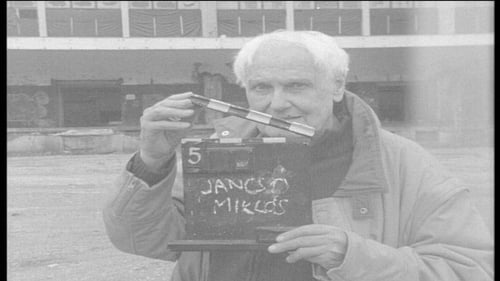
Self
Reconstructions of unrealized Hungarian films in cooperation with the greatest Hungarian film directors.

Himself
A documentary about the Democratic Opposition of socialist Hungary.

Himself / Marcus Aurelius
Jancsó’s farce, similar to the previous ones, is about our time and about death. Pepe marries into a family of mafiosi, with the father-in-law rolling in money. In a joint venture they establish the first Hungarian Prison Limited company, where there is a menu, the prisoners are residents, and they furnish the place of execution for those volunteering to execute themselves. It turns out that the first voluntary hanging should be demonstrated on Pepe. In 180 AD Emperor Marcus Aurelius is dying in Vindobona, being fed with blades of hay by uncle Miki himself, and his son Kornél Mundruczó. Kapa provides for communication: he insists on telling lies, lies and again lies. Furthermore, there are several to die and to revive, to win and to lose, and Melancholy Béla is still alive.

Writer
Jancsó’s farce, similar to the previous ones, is about our time and about death. Pepe marries into a family of mafiosi, with the father-in-law rolling in money. In a joint venture they establish the first Hungarian Prison Limited company, where there is a menu, the prisoners are residents, and they furnish the place of execution for those volunteering to execute themselves. It turns out that the first voluntary hanging should be demonstrated on Pepe. In 180 AD Emperor Marcus Aurelius is dying in Vindobona, being fed with blades of hay by uncle Miki himself, and his son Kornél Mundruczó. Kapa provides for communication: he insists on telling lies, lies and again lies. Furthermore, there are several to die and to revive, to win and to lose, and Melancholy Béla is still alive.

Director
Jancsó’s farce, similar to the previous ones, is about our time and about death. Pepe marries into a family of mafiosi, with the father-in-law rolling in money. In a joint venture they establish the first Hungarian Prison Limited company, where there is a menu, the prisoners are residents, and they furnish the place of execution for those volunteering to execute themselves. It turns out that the first voluntary hanging should be demonstrated on Pepe. In 180 AD Emperor Marcus Aurelius is dying in Vindobona, being fed with blades of hay by uncle Miki himself, and his son Kornél Mundruczó. Kapa provides for communication: he insists on telling lies, lies and again lies. Furthermore, there are several to die and to revive, to win and to lose, and Melancholy Béla is still alive.

Writer
By the notes of Fiáth Pompeiusz, the one-time friend of Kapa and Pepe, Professor Szirtes has solved the secret of the time machine, and he realizes the invention relying on "special" H2O. Kapa and Pepe shall return by it into the past in order to set time right, which is out of joint, that is, to correct history, to save King Louis II, and prevent the Mohács Disaster. Pepe yields to the not too tender persuasion to enter upon the great journey through time, dies and revives, and they arrive at the battlefield of Mohács in time. Kapa films the events. The Turks win and cut off the king’s, Pepe’s, head, still the Hungarians dictate the peace treaty. Kapa and Pepe want to return, they fill the time machine up with water from the well, yet it won’t start. Even so Kapa and Pepe hover over Budapest and quarrel.

Director
By the notes of Fiáth Pompeiusz, the one-time friend of Kapa and Pepe, Professor Szirtes has solved the secret of the time machine, and he realizes the invention relying on "special" H2O. Kapa and Pepe shall return by it into the past in order to set time right, which is out of joint, that is, to correct history, to save King Louis II, and prevent the Mohács Disaster. Pepe yields to the not too tender persuasion to enter upon the great journey through time, dies and revives, and they arrive at the battlefield of Mohács in time. Kapa films the events. The Turks win and cut off the king’s, Pepe’s, head, still the Hungarians dictate the peace treaty. Kapa and Pepe want to return, they fill the time machine up with water from the well, yet it won’t start. Even so Kapa and Pepe hover over Budapest and quarrel.

Himself
This time, Kapa and Pepe are first of all prisoners of war – and convicts taken to forced labor service, Jews, Hungarian soldiers, German soldiers. Once they are to be executed, then again they are to perform executions. The film tells in spectacular episodes about the fact that in the past more than one century and a half we kept marching from war to war; occupation and liberation turned out to be indifferent, and why couldn’t the Jews execute the SS-guys? Our heroes hover about dilapidated barracks, then again on the bridges of the capital they guess whose satellites or eternal friends for all times we might be just now. In the cupboard, among the preserved fruit bottles, Stalin is still hiding. The authors of the film are cited before court, then in a showcase hospital they are waiting for the end to come. A Soviet soldier-maid closes the film with a Péter Nádas-quote.

Writer
This time, Kapa and Pepe are first of all prisoners of war – and convicts taken to forced labor service, Jews, Hungarian soldiers, German soldiers. Once they are to be executed, then again they are to perform executions. The film tells in spectacular episodes about the fact that in the past more than one century and a half we kept marching from war to war; occupation and liberation turned out to be indifferent, and why couldn’t the Jews execute the SS-guys? Our heroes hover about dilapidated barracks, then again on the bridges of the capital they guess whose satellites or eternal friends for all times we might be just now. In the cupboard, among the preserved fruit bottles, Stalin is still hiding. The authors of the film are cited before court, then in a showcase hospital they are waiting for the end to come. A Soviet soldier-maid closes the film with a Péter Nádas-quote.

Director
This time, Kapa and Pepe are first of all prisoners of war – and convicts taken to forced labor service, Jews, Hungarian soldiers, German soldiers. Once they are to be executed, then again they are to perform executions. The film tells in spectacular episodes about the fact that in the past more than one century and a half we kept marching from war to war; occupation and liberation turned out to be indifferent, and why couldn’t the Jews execute the SS-guys? Our heroes hover about dilapidated barracks, then again on the bridges of the capital they guess whose satellites or eternal friends for all times we might be just now. In the cupboard, among the preserved fruit bottles, Stalin is still hiding. The authors of the film are cited before court, then in a showcase hospital they are waiting for the end to come. A Soviet soldier-maid closes the film with a Péter Nádas-quote.


Himself
A girl is on the skids because of love. A shorttempered and passionate young man falls in love with the girl. His emotions are so powerful that he is prepared to surrender his whole personality. The boy has a good friend, who is not sure whether their bond is friendly or homosexual. Before the girl arrived, the friendship was close, but now she has thrown a spanner in the works. How do they react to the new situation?
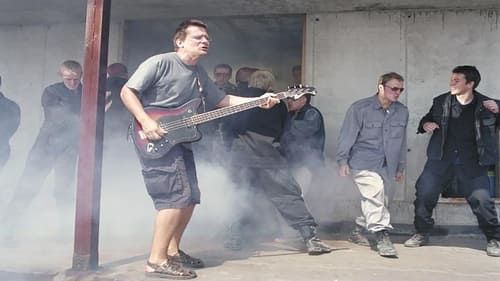
Himself
Waiters’ competition at Heroes’ Square in the late thirties. Dressed as waiters, Kapa and Pepe awake in the bronze chariot of the millennial sculpture group. They drive along the Danube promenade, and on the concrete reinforcement of the demolished Budapest rondella hotel they get involved in a showdown of political background. In the burnt-down Sports Hall the waiters train for a last supper, Pepe and Kapa run around the big laid table with trays in their hands. While doing so, Pepe keeps crying out: "I am the best one, I am the most beautiful one, I am the king, I am the god..." Sitting in a boat on the Danube, a ship goes past them, and the Niagara falls, majestic and breathtaking, resound in their ears. On each passing away something new will come to life – as rapped by Sub Bass Monster.

Writer
Waiters’ competition at Heroes’ Square in the late thirties. Dressed as waiters, Kapa and Pepe awake in the bronze chariot of the millennial sculpture group. They drive along the Danube promenade, and on the concrete reinforcement of the demolished Budapest rondella hotel they get involved in a showdown of political background. In the burnt-down Sports Hall the waiters train for a last supper, Pepe and Kapa run around the big laid table with trays in their hands. While doing so, Pepe keeps crying out: "I am the best one, I am the most beautiful one, I am the king, I am the god..." Sitting in a boat on the Danube, a ship goes past them, and the Niagara falls, majestic and breathtaking, resound in their ears. On each passing away something new will come to life – as rapped by Sub Bass Monster.

Director
Waiters’ competition at Heroes’ Square in the late thirties. Dressed as waiters, Kapa and Pepe awake in the bronze chariot of the millennial sculpture group. They drive along the Danube promenade, and on the concrete reinforcement of the demolished Budapest rondella hotel they get involved in a showdown of political background. In the burnt-down Sports Hall the waiters train for a last supper, Pepe and Kapa run around the big laid table with trays in their hands. While doing so, Pepe keeps crying out: "I am the best one, I am the most beautiful one, I am the king, I am the god..." Sitting in a boat on the Danube, a ship goes past them, and the Niagara falls, majestic and breathtaking, resound in their ears. On each passing away something new will come to life – as rapped by Sub Bass Monster.

Himself
Kapa, Pepe and Mesi would like to buy a scrapyard of trains, to start a nostalgia train and earn a lot of money. The capital to start with they want to get from grandpa, who has come home from America with a suitcase full of money. Everybody wants Mesi to approach the old man, because she is the only one he would speak to. But Mesi is more concerned with the idea that she wants a child, by now from anyone, while Pepe is jealous. Kapa’s alleged son emerges, with the mafia behind him: they, too, are eager to get grandpa’s money. After threats and blackmailing, poisoned apples are sent, with only one side of them poisonous. Those dead, by the way, are resurrected by the sound of a song. At last, nobody manages to get the money, but it wouldn’t make sense anyway: it’s all fake. The Statue of Liberty, however, turns out to be blind.

Writer
Kapa, Pepe and Mesi would like to buy a scrapyard of trains, to start a nostalgia train and earn a lot of money. The capital to start with they want to get from grandpa, who has come home from America with a suitcase full of money. Everybody wants Mesi to approach the old man, because she is the only one he would speak to. But Mesi is more concerned with the idea that she wants a child, by now from anyone, while Pepe is jealous. Kapa’s alleged son emerges, with the mafia behind him: they, too, are eager to get grandpa’s money. After threats and blackmailing, poisoned apples are sent, with only one side of them poisonous. Those dead, by the way, are resurrected by the sound of a song. At last, nobody manages to get the money, but it wouldn’t make sense anyway: it’s all fake. The Statue of Liberty, however, turns out to be blind.

Director
Kapa, Pepe and Mesi would like to buy a scrapyard of trains, to start a nostalgia train and earn a lot of money. The capital to start with they want to get from grandpa, who has come home from America with a suitcase full of money. Everybody wants Mesi to approach the old man, because she is the only one he would speak to. But Mesi is more concerned with the idea that she wants a child, by now from anyone, while Pepe is jealous. Kapa’s alleged son emerges, with the mafia behind him: they, too, are eager to get grandpa’s money. After threats and blackmailing, poisoned apples are sent, with only one side of them poisonous. Those dead, by the way, are resurrected by the sound of a song. At last, nobody manages to get the money, but it wouldn’t make sense anyway: it’s all fake. The Statue of Liberty, however, turns out to be blind.

Himself
In the Kerepesi Street cemetery, three grave diggers contemplate the fate of the world, then they step out of this role and in a sequence of episodes they play the typical figures of contemporary Hungarian reality, the fat cat, the swashbuckler, the victim, underworld chieftains, and present little absurd dramas of love, marriage, friendship, public order and legal safety. The author and the film director walk among them all the time, contemplating, laughing at their plays. The stories starting from the graveyard and returning there warn of the inevitability of death. The author and the director (Gyula Hernádi and Miklós Jancsó) wisely make friends with death.

Writer
In the Kerepesi Street cemetery, three grave diggers contemplate the fate of the world, then they step out of this role and in a sequence of episodes they play the typical figures of contemporary Hungarian reality, the fat cat, the swashbuckler, the victim, underworld chieftains, and present little absurd dramas of love, marriage, friendship, public order and legal safety. The author and the film director walk among them all the time, contemplating, laughing at their plays. The stories starting from the graveyard and returning there warn of the inevitability of death. The author and the director (Gyula Hernádi and Miklós Jancsó) wisely make friends with death.

Director
In the Kerepesi Street cemetery, three grave diggers contemplate the fate of the world, then they step out of this role and in a sequence of episodes they play the typical figures of contemporary Hungarian reality, the fat cat, the swashbuckler, the victim, underworld chieftains, and present little absurd dramas of love, marriage, friendship, public order and legal safety. The author and the film director walk among them all the time, contemplating, laughing at their plays. The stories starting from the graveyard and returning there warn of the inevitability of death. The author and the director (Gyula Hernádi and Miklós Jancsó) wisely make friends with death.

Director
Miklós Jancsó makes fun of his reputation for creating exceptional visuals in "A nagy agyhalál AKA The Great Brain Death." It is the most difficult vignette and while visually stunning, remains difficult to decipher, she breaks with allegorical storytelling.

Director

Director
The Third film in Miklós Jancsó's documentary series Message of Stones.

Director
The second film in Miklós Jancsó's documentary series Message of Stones.

Director
The first film in Miklós Jancsó's documentary series Message of Stones.

Writer
When Hungary's newest prime minister is shot and killed at a reception, the resulting investigation is necessarily swift and comprehensive. This compelling political thriller uncovers two prime suspects: the woman who guns the leader down, and a man who was friends with both the prime minister and his murderer. Using video surveillance footage, as well as other more artful and symbolic imagery, the noted "visualist" director Miklos Jancso, who is known for his craft in getting his points across non-verbally, combines fantasy and reality in a highly ironic manner.

Director
When Hungary's newest prime minister is shot and killed at a reception, the resulting investigation is necessarily swift and comprehensive. This compelling political thriller uncovers two prime suspects: the woman who guns the leader down, and a man who was friends with both the prime minister and his murderer. Using video surveillance footage, as well as other more artful and symbolic imagery, the noted "visualist" director Miklos Jancso, who is known for his craft in getting his points across non-verbally, combines fantasy and reality in a highly ironic manner.

Screenplay
From the film-shooting in the Buda Castle Marci and his friend go to a well-paying job. The scene is a big castle in the middle of a huge park. They enjoy the company of the Kid and the beautiful naked French girl, Nathalie. Their job is to watch the monitors on which they can see the Moscow coup détat. By the time Gorbachev is executed the Communist and the Nationalists have taken turns in occupying the castle and the park.

Director
From the film-shooting in the Buda Castle Marci and his friend go to a well-paying job. The scene is a big castle in the middle of a huge park. They enjoy the company of the Kid and the beautiful naked French girl, Nathalie. Their job is to watch the monitors on which they can see the Moscow coup détat. By the time Gorbachev is executed the Communist and the Nationalists have taken turns in occupying the castle and the park.

Writer
Jancso emphasizes highly evocative and ambiguous imagery over dialog or exposition. Here he seems primarily interested in showing the painful, stunted lives of Hungary's intellectuals, who are shown as remaining silent and ineffectual during various political crises. There are several action sequences involving chases and shootouts, but since there's no clear narrative we're not sure how they relate to each other or to anything else. The film is, however, visually fascinating, with shots of police cars, horses, and naked bodies juxtaposed and extensive use of multiple video imagery.

Director
Jancso emphasizes highly evocative and ambiguous imagery over dialog or exposition. Here he seems primarily interested in showing the painful, stunted lives of Hungary's intellectuals, who are shown as remaining silent and ineffectual during various political crises. There are several action sequences involving chases and shootouts, but since there's no clear narrative we're not sure how they relate to each other or to anything else. The film is, however, visually fascinating, with shots of police cars, horses, and naked bodies juxtaposed and extensive use of multiple video imagery.
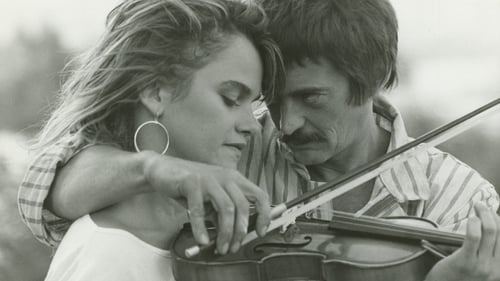
Director
Zoltai is a Hungarian professor who returns home after a visit to the United States. Following a television interview, he commits suicide and leaves a note for his longtime friend Dr. Bardocz. The doctor and Zoltai's colleague Komindi join the police in investigating what drove the man to suicide.

Writer
In a drama in which even God has a role (Philippe Leotard) as well as Michael York, it is certain that serious issues are at stake. Set during the time before the state of Israel was created and established, a British officer has been captured by a band of Jewish resistance fighters with the intent of killing him at dawn. One of the Jews was sentenced to die after being captured by the English, and this death will be in retaliation. The trouble is that a young and ambivalent fighter is left holding the officer captive with orders to shoot him at the pre-arranged time. It is a long night of soul-searching before the Jewish soldier comes up with a solution to his quandary.

Director
Two rabbis show the ruins of an abandoned synagogue to a group of primary school-age Jewish children, and stand by as the children dip bread in honey, drink wine, pray, and sing.

Director
In a drama in which even God has a role (Philippe Leotard) as well as Michael York, it is certain that serious issues are at stake. Set during the time before the state of Israel was created and established, a British officer has been captured by a band of Jewish resistance fighters with the intent of killing him at dawn. One of the Jews was sentenced to die after being captured by the English, and this death will be in retaliation. The trouble is that a young and ambivalent fighter is left holding the officer captive with orders to shoot him at the pre-arranged time. It is a long night of soul-searching before the Jewish soldier comes up with a solution to his quandary.

Director

Director
The film the was made of OMEGA band's November 1982 concert in the Budapest Sportstadium.

Director

Writer
A historical drama set in the 1400s, a young man sent to Italy but is forced back after his father's mysterious death.

Director
A historical drama set in the 1400s, a young man sent to Italy but is forced back after his father's mysterious death.

Writer
Zsadányi flees from the authorities with his goddaughter, Bankós Mari, and they escape into the forest. The film then skips ahead thirty-fold years: Zsadány and Mari are now lovers, with the sound of war in the background halting their romance. The old friends of Zsadányi have joined with the Nazis, and the landowner living with his peasants in a socialist community grows distant from them. Zsadányi is held responsible for political problems in the country, and will pay with his life.

Director
Zsadányi flees from the authorities with his goddaughter, Bankós Mari, and they escape into the forest. The film then skips ahead thirty-fold years: Zsadány and Mari are now lovers, with the sound of war in the background halting their romance. The old friends of Zsadányi have joined with the Nazis, and the landowner living with his peasants in a socialist community grows distant from them. Zsadányi is held responsible for political problems in the country, and will pay with his life.
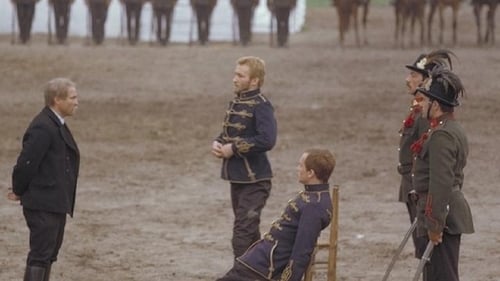
Writer
The movie portrays a peasant revolt in Hungary in the early twentieth century.

Director
The movie portrays a peasant revolt in Hungary in the early twentieth century.

Director
An exploration of a decaying synagogue.

Director

Director
The setting is a Central European kingdom, near the turn of the century. Bored by his very proper wife, the youthful heir to the throne spends his time in amorous dalliances at a sprawling country estate. His wife departs at the arrival of his friends, and they organize a celebration which becomes a wild orgy and culminates in death and tragedy.

Writer
The setting is a Central European kingdom, near the turn of the century. Bored by his very proper wife, the youthful heir to the throne spends his time in amorous dalliances at a sprawling country estate. His wife departs at the arrival of his friends, and they organize a celebration which becomes a wild orgy and culminates in death and tragedy.
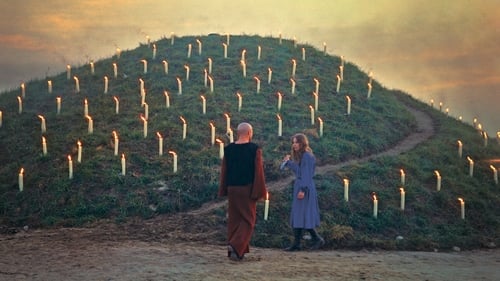
Director
It has been fifteen years since the death of her father, Agamemnon, and Elektra still burns with hatred for Aegisztosz, who conspired with Elektra's mother to kill him.

Director
In this costume epic, the last days of Julius Caesar are chronicled.

Director
The narrative concerns the barbaric exploits of Attila The Hun and yet none of the characters ever leave the remote seaside stretch of land on which the film is set or do much of anything – with the ensuing moralizing interrupted only by the occasional (and equally obscure) music-infused rites.
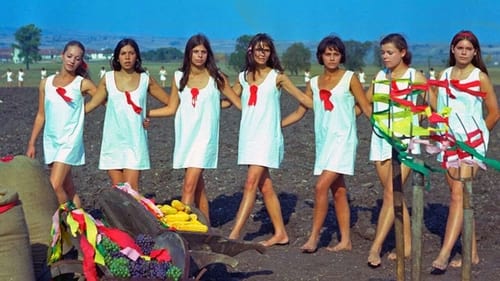
Director
개성 강한 작가 중에서도 가장 독창적인 작가로 평가받는 미끌로쉬 얀초의 작품으로 1972년 칸 영화제 감독상을 수상한 작품이다. 붉은 시편은 단지 28개의 쇼트만으로 구성되어져 있는데 그의 작품은 발레를 보는 듯한 인물들의 움직임과 역동적인 카메라를 워크, 탁월한 색채 감각이 빚어내는 생동감 넘치는 이미지들이 특징이다.
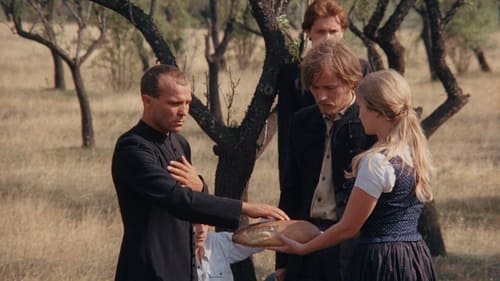
Writer
1919년 혁명 진압 이후 헝가리에 파시즘이 도래했음을 비판하는 풍자극으로, 한 시골 마을에서 혁명군이 독실하고 광적인 신부 ‘바르가’의 목숨을 살려주지만, 그가 후에 학살을 주동한다는 내용을 담고 있다. 사회 변혁의 시대, 권력을 쥐는 세력이 바뀔 때마다 민중을 억압하는 방법은 더욱 정교하고 교묘해진다는 것을 한편의 우화로 보여주는 작품.

Director
1919년 혁명 진압 이후 헝가리에 파시즘이 도래했음을 비판하는 풍자극으로, 한 시골 마을에서 혁명군이 독실하고 광적인 신부 ‘바르가’의 목숨을 살려주지만, 그가 후에 학살을 주동한다는 내용을 담고 있다. 사회 변혁의 시대, 권력을 쥐는 세력이 바뀔 때마다 민중을 억압하는 방법은 더욱 정교하고 교묘해진다는 것을 한편의 우화로 보여주는 작품.
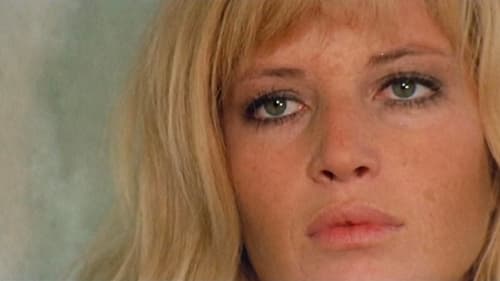
Director
Barbara (Monica Vitti) is a journalist investigating the local counterculture who becomes involved, after an unpleasant start of battery and stalking, with Pierre Clémenti's louche all-around dropout.

Writer
The preparation, in Hungary, of the assassination in Marseilles of King Alexander of Yugoslavia in 1934.

Director
The preparation, in Hungary, of the assassination in Marseilles of King Alexander of Yugoslavia in 1934.
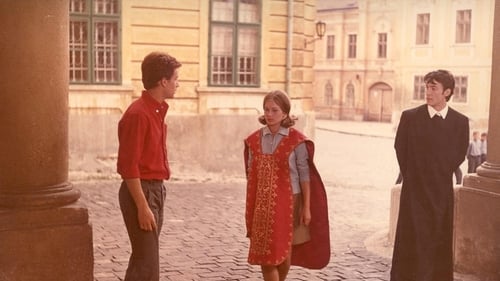
Director
1947년, 전국민중대학생연합에 소속된 청년 공산당원들이 교회와 중학교를 점령한다. 마르크스주의의 유효성을 토론하며, 학생들을 자극하는 청년들. 학생 몇 명을 체포하러 온 경찰관을 두고 거친 논쟁이 벌어지고, 리더인 ‘라치’는 자리에서 물러난다. 그의 권력을 이어받은 두 여학생이 사제들의 옷을 벗기고, 책을 던지고, 창문을 깨트리는 폭력을 행사하면서 사태는 더욱 악화되는데…. 혁명이라는 이름으로 자행되는 폭력의 악순환과 권력욕을 비판하는 강렬한 수작. (한글자막 제공_전주국제영화제)

Writer
1947년, 전국민중대학생연합에 소속된 청년 공산당원들이 교회와 중학교를 점령한다. 마르크스주의의 유효성을 토론하며, 학생들을 자극하는 청년들. 학생 몇 명을 체포하러 온 경찰관을 두고 거친 논쟁이 벌어지고, 리더인 ‘라치’는 자리에서 물러난다. 그의 권력을 이어받은 두 여학생이 사제들의 옷을 벗기고, 책을 던지고, 창문을 깨트리는 폭력을 행사하면서 사태는 더욱 악화되는데…. 혁명이라는 이름으로 자행되는 폭력의 악순환과 권력욕을 비판하는 강렬한 수작. (한글자막 제공_전주국제영화제)

Director
Inspired by Giovanni Boccaccio's 14th-century collection of novellas known as The Decameron, this innovative film combines short works from seven directors who set out to interpret Boccaccio's masterwork for the modern age. The result is an assortment of titillating tales ranging from the erotic to the tragic.

Writer
Set during a turbulent era of disquiet, fear, persecution and terror, which permeates every corner of post-WWI Hungarian society. In 1919, after just a few months of communist rule the Hungarian Republic of Councils falls victim to a nationalist counter-revolution. Admiral Horthy, leader of the nationalist far right movement, becomes the self-proclaimed regent of Hungary, and assumes power as the legal Head of State. Soldiers of the short-lived Hungarian Red Army are now on the run from relentless secret policemen and patrol units of the nationalist Royal Gendarme. If caught, ex-Red Army soldiers are executed without mercy or proper trial. István Cserzi, a former soldier of the Red Army has fled to the Great Hungarian Plains and has taken refuge on a farm, which is run by two sympathetic women. Due to the generosity of these women and a former childhood pal...

Director
Set during a turbulent era of disquiet, fear, persecution and terror, which permeates every corner of post-WWI Hungarian society. In 1919, after just a few months of communist rule the Hungarian Republic of Councils falls victim to a nationalist counter-revolution. Admiral Horthy, leader of the nationalist far right movement, becomes the self-proclaimed regent of Hungary, and assumes power as the legal Head of State. Soldiers of the short-lived Hungarian Red Army are now on the run from relentless secret policemen and patrol units of the nationalist Royal Gendarme. If caught, ex-Red Army soldiers are executed without mercy or proper trial. István Cserzi, a former soldier of the Red Army has fled to the Great Hungarian Plains and has taken refuge on a farm, which is run by two sympathetic women. Due to the generosity of these women and a former childhood pal...
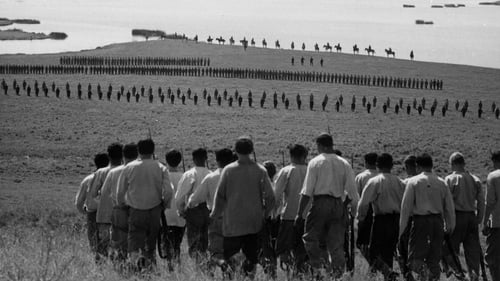
Writer
1918년, 소련 혁명군인 적군과 정부군인 백군의 참혹한 대립을 그린 작품. 일만 여명의 헝가리 의용군들이 소비에트 적군에 합류해 혁명의 전쟁을 시작한다. 하지만 백군의 공격을 받고 전멸당할 위기에 처한 이들. 살아 남은 이스타반은 인근의 병원으로 탈출해 도움을 요청하지만, 남은 적군들도 대평원의 전투에서 모두 장렬히 전사한다. 뒤늦게 도착한 지원군의 병사 라즐로는 칼을 들어 그들의 죽음에 경의를 표한다. 10월 혁명 50주년을 기념하기 위해 제작된 영화로, 한치의 화면도 낭비하지 않는 구성과 영상미는 지금 봐도 매우 탁월하다.

Director
1918년, 소련 혁명군인 적군과 정부군인 백군의 참혹한 대립을 그린 작품. 일만 여명의 헝가리 의용군들이 소비에트 적군에 합류해 혁명의 전쟁을 시작한다. 하지만 백군의 공격을 받고 전멸당할 위기에 처한 이들. 살아 남은 이스타반은 인근의 병원으로 탈출해 도움을 요청하지만, 남은 적군들도 대평원의 전투에서 모두 장렬히 전사한다. 뒤늦게 도착한 지원군의 병사 라즐로는 칼을 들어 그들의 죽음에 경의를 표한다. 10월 혁명 50주년을 기념하기 위해 제작된 영화로, 한치의 화면도 낭비하지 않는 구성과 영상미는 지금 봐도 매우 탁월하다.

Director

Director
1860년대 말, 헝가리에서 코슈트 러요시가 이끌었던 헝가리 혁명이 진압되고 오스트리아가 헝가리의 패권을 다시 잡았던 시기를 배경으로 하고 있다. 저항군들은 고립된 요새에 감금된다. 수용소의 교도관들은 이 수감자들 중에 반란군의 지도자들이 있다는 사실을 알게 되고 그들의 색출을 위해 온갖 고문을 자행한다.

Director
In the final days of World War II, a young Hungarian is making his way home, through countryside full of the debris of war, when he is captured and imprisoned by Russians. Left in the custody of a young Russian soldier, the two youths form a friendship in spite of not speaking each other's language.

Director
Two old men enter an abandoned synagogue, look at the decay around them, and pray.
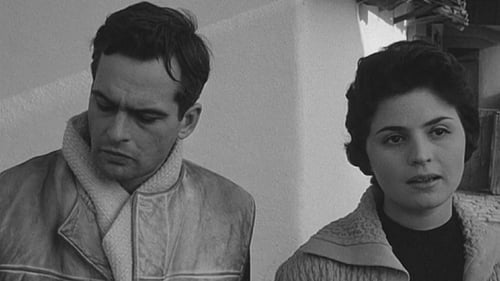
Screenplay
전도유망한 젊은 의사 ‘암브루슈’는 은퇴한 노교수가 존재감을 증명하려고 집도하는 심장 수술에 참여한다. 수술 이후 자신의 삶에 회의를 품게 된 ‘암브루슈’는 목적 없는 인생과 미래를 알 수 없는 사랑에 지쳐 고향으로 떠난다. 그리고 귀향길에서 아버지의 신념과 인간애를 느끼며, 다시 새로운 희망을 얻는다. (한글자막 제공_전주국제영화제)

Director
전도유망한 젊은 의사 ‘암브루슈’는 은퇴한 노교수가 존재감을 증명하려고 집도하는 심장 수술에 참여한다. 수술 이후 자신의 삶에 회의를 품게 된 ‘암브루슈’는 목적 없는 인생과 미래를 알 수 없는 사랑에 지쳐 고향으로 떠난다. 그리고 귀향길에서 아버지의 신념과 인간애를 느끼며, 다시 새로운 희망을 얻는다. (한글자막 제공_전주국제영화제)

Director
Still photographs and narration give an overview of the history of the American Indian.

Director

Director

Director
A celebration of the culture and the ancient traditions in Badacsony.

Director

Director

Writer

Director

Director




















